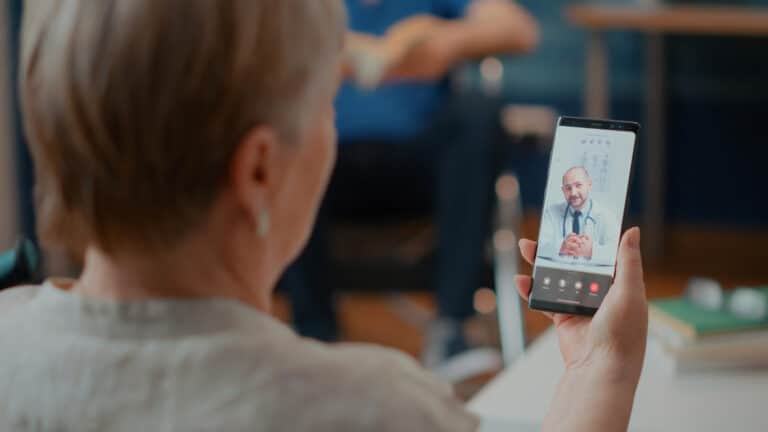Telehealth: Things You Should Know Before Acquiring It
Telehealth and remote monitoring technologies have revolutionized healthcare delivery, particularly in the field of neurology. This evolution not only improves access to medical care but also enables more personalized and early intervention. Here’s what you need to know about telehealth before incorporating it into your health plan.

Telehealth and remote monitoring technologies have revolutionized healthcare delivery, particularly in the field of neurology. This evolution not only improves access to medical care but also enables more personalized and early intervention. Here’s what you need to know about telehealth before incorporating it into your health plan.
Revolution in Healthcare Delivery
Telehealth has transformed the way healthcare is delivered. Virtual consultations allow patients to receive medical advice and care from the comfort of their homes, eliminating the need for long and costly trips. This is particularly beneficial for patients with neurological conditions such as Parkinson’s disease or multiple sclerosis, who may have mobility issues or require frequent consultations.
Virtual consultations not only save time and money but also ensure continuity of care. Patients can have regular access to their specialists, which is crucial for managing chronic conditions. During health emergencies like the COVID-19 pandemic, telehealth has proven essential in maintaining care without exposing patients and healthcare providers to unnecessary risks.
Remote Monitoring Devices
Remote monitoring devices, such as wearable sensors and mobile apps, allow healthcare providers to continuously track patients’ vital signs, medication adherence, and disease progression. These devices are fundamental for personalized care and early intervention.
For instance, in patients with Parkinson’s disease, wearable sensors can monitor tremors and other motor symptoms in real-time, providing valuable data that doctors can use to adjust treatments. Similarly, mobile apps can remind patients when to take their medications and record any side effects, improving adherence and overall treatment efficacy.
Advantages of Telehealth in Neurology
Personalized Care, new ways by telehealth
The ability to continuously monitor patients allows doctors to offer more personalized care. Data collected through remote monitoring devices can reveal patterns and trends that may not be evident in a traditional consultation. This facilitates the creation of treatment plans tailored to the specific needs of each patient.
Early Intervention
Early detection of changes in vital signs or disease progression can make a significant difference in treatment outcomes. With remote monitoring, doctors can intervene before symptoms worsen, adjusting treatments and preventing serious complications. This is particularly important in progressive diseases like Parkinson’s, where proactive management can significantly improve the patient’s quality of life.
Cost Reduction by telehealth
By reducing the need for physical visits to the clinic, telehealth can help lower costs for both patients and the healthcare system. Virtual consultations and remote monitoring can decrease hospitalizations and emergency visits, leading to substantial savings.
Improved Accessibility
Telehealth removes geographical barriers, allowing patients in rural areas or with limited mobility to access specialists without traveling long distances. This is crucial for equity in healthcare, ensuring that all patients have access to high-quality care regardless of their location.
Considerations Before Adopting Telehealth
Evaluate Available Technology
It is essential to ensure that both patients and healthcare providers have access to the necessary technology for virtual consultations and remote monitoring. This includes devices capable of video calls, stable internet connections, and basic knowledge of how to use these technologies.
Training and Support
Healthcare providers need adequate training on how to use telehealth platforms and remote monitoring devices. Additionally, it is important to offer technical support to both healthcare professionals and patients to resolve any issues that may arise.
Privacy and Security
Telehealth involves the exchange of sensitive health data, so it is crucial to ensure that the platforms used comply with privacy and data security regulations. This includes using secure connections and protecting against unauthorized access.
Conclusion
Telehealth and remote monitoring technologies represent a significant evolution in healthcare, offering clear benefits in terms of accessibility, personalization, and efficiency. However, it is important to carefully consider technological, training, and security aspects before adopting these tools.